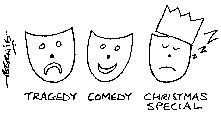Some of you are going to be appalled that it has taken me till now to read Trollope’s Autobiography. And quite right too. If I’d read it in my mid-twenties instead of my mid-forties, I would have had two dozen novels under my belt by now instead of a measly five-and-a-half. And you would never have had to read a single column of mine complaining about how poor and underrated I am, because I wouldn’t be. By the time he was my age, Trollope was a household name and bringing in £4,500 a year. This is the rough equivalent of £675,000 today.
How did he do it? By treating the business of writing not as an ‘art’ to get precious about but just another journeyman craft to be laboured at nine-to-five. Or, in Trollope’s case, 5.30 a.m. (when his groom would arrive with a cup of strong coffee) to 8.30 a.m. Three hours’ novel-writing a day was quite enough, Trollope believed, so long as you could discipline yourself to be solidly productive. To this end, he timed himself to ensure that he would never produce less than 250 words per quarter hour. Allowing for the time he spent reading the previous day’s efforts, and for weekends off, this meant that in an average week Trollope would turn out 10,000 words. At his most productive, this resulted in two books a year.
This is why Trollope’s Autobiography is probably the greatest book about writing ever written. It treats you to the kind of detail writers usually prefer to skirt, either because they’re bored with repeating it (‘Where do you get your ideas?’ ‘What’s your routine?’) or because they’re too coy (‘How much do you make?’). Trollope had no shame or fear. He knew his autobiography wasn’t going to be published till after his death so he told it like it was.
If this column had gone on like I’d meant it to go on when I started it four months ago, I expect it would have told you lots more fascinating stuff. About his early life, for example: that was awful — quite Dickensian in the colour and scale and improbability of its unfairness and squalor, with the amiably feckless father, the appalling education at Harrow where everyone despised young Trollope for being a pauper, the brothers and sisters dropping like flies from TB, and only the author’s mother keeping things together by the skin of her teeth. Great material for a would-be novelist, mind you.
Tragically, though, it cannot be. I’ve forgotten all the detail. (Where’s Paul Johnson when you need him?) I can’t look it up because the book’s by my bed and I’m on a train to York, where I’ve just had an unexpected phone call saying: ‘Where’s your Christmas edition copy?’ Whoops!
Mind you, re-reading those few paragraphs I’m not sure I like the way the piece was originally going. In fact, I think I now disagree quite violently with its premise that Trollope’s advice has any relevance to the contemporary author and that if only I’d followed it earlier all would be tickety boo. No it wouldn’t. Any fool could have made money writing novels in Trollope’s day. All the technological advances that have supposedly made our lot better in fact have made it heaps worse.
Take research. I love research, all novelists love research because it’s the most brilliant substitute for work ever invented. You don’t feel guilty: how can you? It’s research! For example, in the last few days, instead of writing my book, I have been reading Eclipse by Alan Moorehead (contemporary colour, detail, etc), which I picked up on a research expedition to Hay-on-Wye; I’ve pored over the war pics in the Battle of the Bulge edition of After The Battle so I know exactly how much snow there was on the ground in Honsfeld on 16 December 1944; I’ve spent half a day on YouTube listening to the sound Nebelwerfer rockets make as they leave the tubes, and watching documentaries on how to cock and fire a Sturmgewehr 44; I’ve trawled through obscure sites where trainspotterish war geeks try to trace the identity of the famous SS man in the photo with the helmet and scarf round his head; and so on.
And you know what? First, it’s never going to be enough for the hardcore obsessives out there, who’ll tell me, ‘You’re wrong. They can’t possibly be Kampfgruppe Peiper in Honsfeld at that time of day; they’ll have been either Fallschirmjäger or Wehrmacht. Panzergrenadiers. Peiper’s lot left 15 minutes earlier.’ Second, while accuracy is nice, only a few dweebs really care and the danger is it becomes an end in itself. What really matters in a novel is still the old-fashioned stuff: plotting, emotional truth, character.
For that old-fashioned stuff you need time, real time, the kind of stuff Trollope had in spades in his days out in the hunting field, and riding all over Ireland from one appointment to the next and on ship journeys and train journeys where there was no danger of being interrupted by texts, emails and calls from the office. The most important part of novel-writing is not the writing but the thinking. In this respect, Trollope’s generation of novelists had no idea how lucky they were.
And because their audience knew less (not having the internet at their fingertips to fact-check every last detail) they could afford to research less — or, better still, write from their own experience, which you could do in those days because everyone went out and lived the experience to write from instead of being chained to a computer. And because Call of Duty hadn’t been invented, nor Facebook, nor blogs, there was a more than sufficient number of people out there willing to part with their money to purchase a novel for their delectation and their entertainment. Not any more there ain’t. Not hardly. Trollope, mate, your lot never had it so good.







Comments